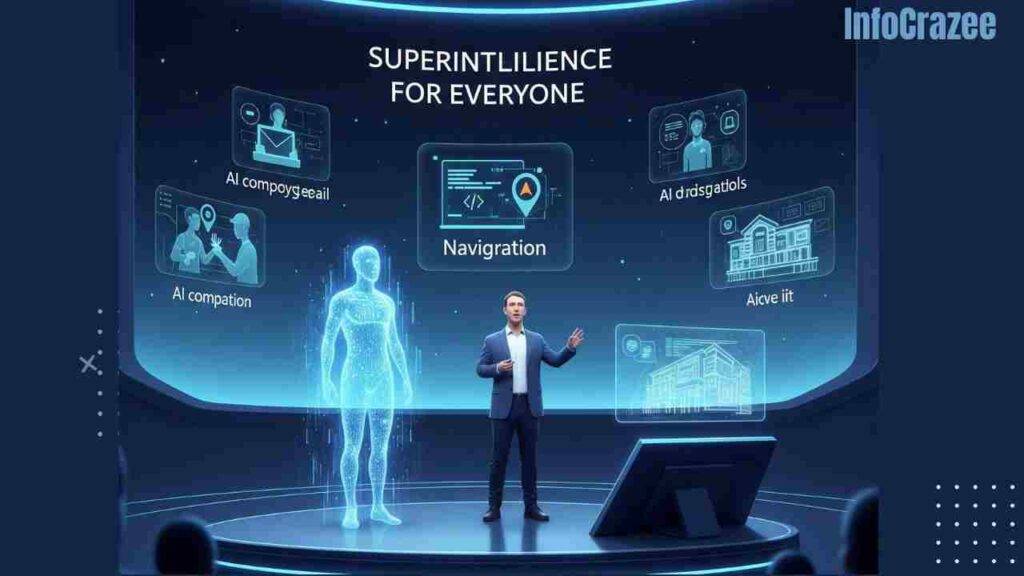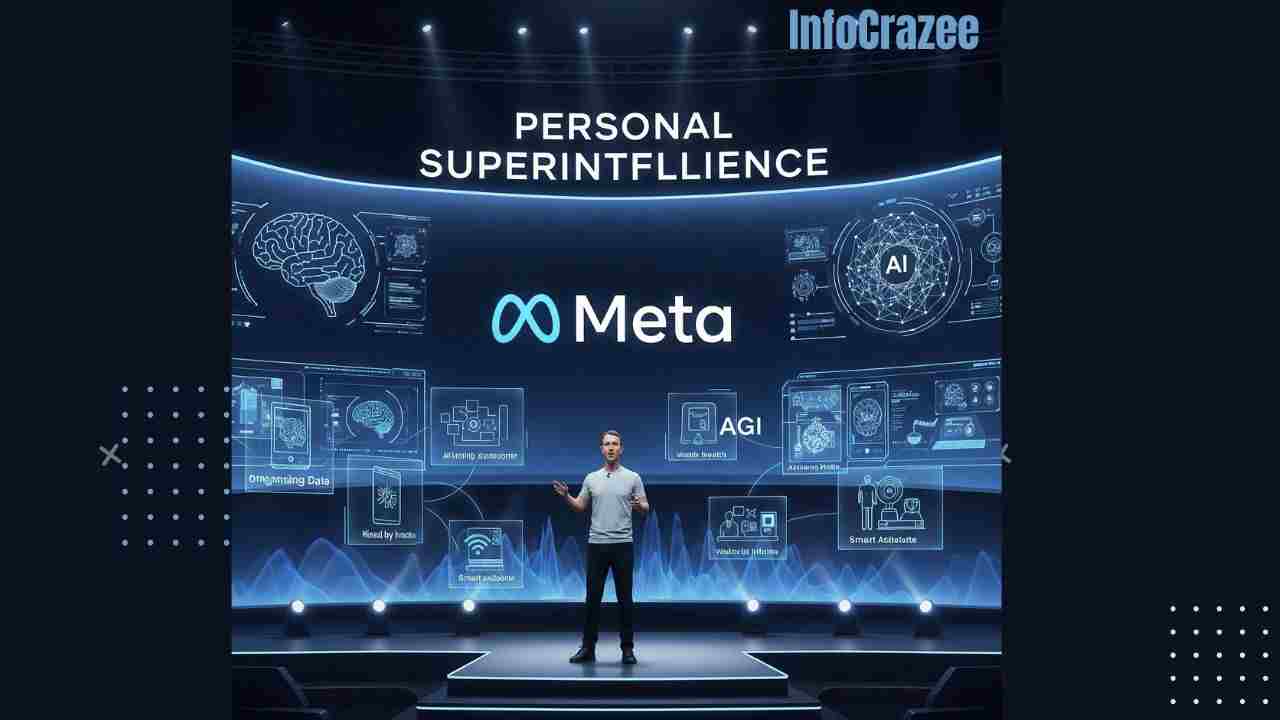Zuckerberg Unveils Meta’s Ambitious Vision for ‘Personal Superintelligence’ at AI Summit
Meta CEO Mark Zuckerberg announced a transformative vision for artificial intelligence at the 2025 AI Summit, outlining plans to develop “personal superintelligence” through the newly formed Meta Superintelligence Labs (MSL). Aimed at delivering AI that surpasses human capabilities and integrates seamlessly into daily life, this initiative positions Meta as a frontrunner in the race for artificial general intelligence (AGI) and beyond. Backed by a $14.3 billion investment in Scale AI and a star-studded team of AI experts, Meta’s bold strategy is set to redefine how individuals interact with technology.
A Vision for Personal Superintelligence
Zuckerberg described personal superintelligence as AI that acts as a tailored, all-purpose assistant, capable of solving complex problems, enhancing productivity, and powering innovative devices like Meta’s smart glasses. “Our mission is to put superintelligence in everyone’s hands, making it the most impactful technology in our lives,” Zuckerberg said. Unlike competitors like OpenAI or Google, which focus on enterprise or cloud-based AI, Meta aims to create intuitive, consumer-facing AI that enhances social media, advertising, and wearable technology.

The MSL, led by former Scale AI CEO Alexandr Wang and ex-GitHub CEO Nat Friedman, unifies Meta’s AI efforts, including its Fundamental AI Research (FAIR) team, product divisions, and a new lab dedicated to next-generation models. The team includes high-profile hires from OpenAI, Anthropic, and Google, such as Shuchao Bi (co-creator of GPT-4o) and Jack Rae (Gemini pre-training lead), signaling an aggressive push to outpace rivals.
Massive Infrastructure and Talent Investments
To support this vision, Meta is committing hundreds of billions to build AI superclusters, with the first, named Prometheus, slated for 2026. Another, Hyperion, will scale to 5 gigawatts, capable of powering millions of homes. “We have the capital and expertise to lead in superintelligence,” Zuckerberg stated, citing Meta’s $165 billion revenue in 2024 as a foundation for its ambitious spending.
Meta’s recent hiring spree, including a $14.3 billion deal to bring Wang onboard, has drawn criticism from competitors. OpenAI’s chief research officer called the talent raids “theft,” but Zuckerberg defended the moves, emphasizing Meta’s unique position to scale AI through its vast user base and hardware expertise, particularly in wearables like smart glasses.
Transforming Everyday Experiences
Zuckerberg highlighted five key areas for Meta’s AI: enhancing advertising, improving social media content recommendations, streamlining online commerce, advancing the Meta AI assistant, and powering smart glasses. Unlike traditional AI models, Meta’s superintelligence will be embedded in devices that “see what you see and hear what you hear,” offering real-time assistance via AR interfaces. Recent updates to Facebook and Instagram’s recommendation algorithms have already increased user engagement by 10%, showcasing AI’s immediate impact.
The wristband, recently detailed in Nature, uses neuromotor signals to enable screenless typing and device control, complementing Meta’s vision for seamless AI integration. This technology, combined with smart glasses, aims to replace smartphones as the primary interface for personal superintelligence, freeing Meta from reliance on Apple and Google’s app ecosystems.
Challenges and Skepticism
Despite the enthusiasm, Meta faces hurdles. The lukewarm reception to its Llama 4 model and internal doubts about the company’s AI mission have raised questions about execution. An outgoing Meta researcher noted a lack of clarity in the company’s AI strategy, though Meta dismissed these concerns, emphasizing its new leadership and talent density. Critics also draw parallels to Meta’s metaverse push, which promised revolutionary change but fell short, fueling skepticism about Zuckerberg’s latest vision.
Analysts at Forrester remain cautiously optimistic, noting that Meta’s focus on consumer-centric AI differentiates it from competitors but requires flawless execution to deliver. “Personal superintelligence is a bold bet, but Meta’s track record with ambitious projects is mixed,” said analyst Priya Lakshmi.
A New Era for AI
Meta’s push for personal superintelligence signals a shift toward democratizing advanced AI, with potential to reshape social, commercial, and personal interactions. By leveraging its 3 billion-strong user base, massive compute investments, and wearable technology expertise, Meta aims to outmaneuver rivals in the AGI race.






